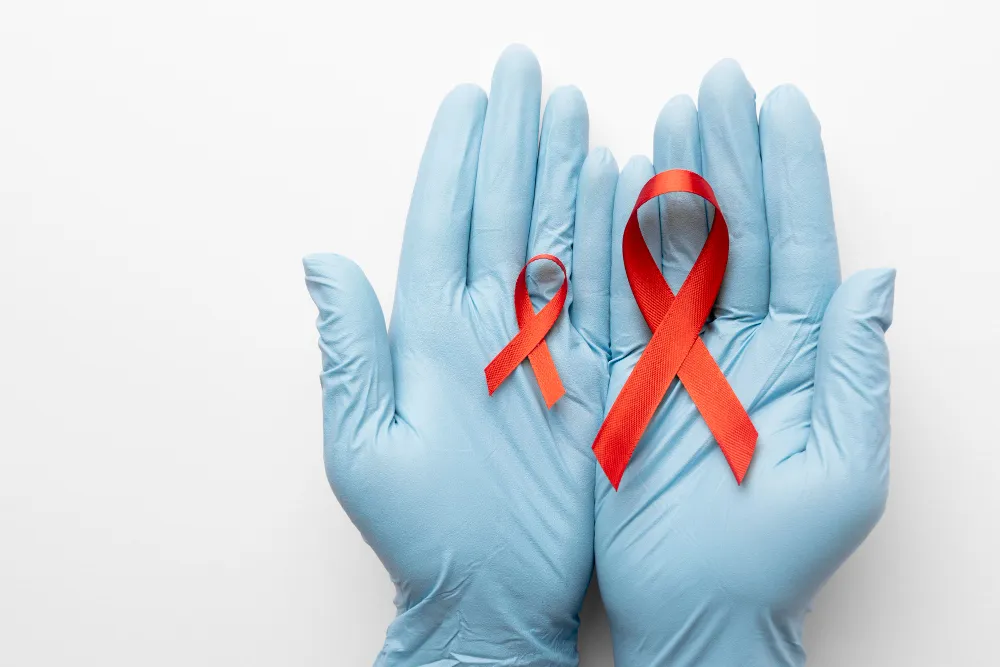


AIDS (Acquired Immunodeficiency Syndrome) is one of the most serious diseases humanity has faced in recent decades. It is caused by the Human Immunodeficiency Virus (HIV), which attacks the immune system and weakens the body's ability to fight infections and other diseases.
Although there is still no definitive cure for AIDS, medical advancements, preventive strategies, and community awareness can play a major role in reducing its spread and improving the lives of those affected. This article sheds light on how to combat AIDS through prevention, treatment, awareness, and support for scientific research.
Prevention is the cornerstone of reducing the spread of HIV. Effective measures include:
- **Condom use**: Consistent and correct use of condoms is one of the most effective methods to prevent HIV transmission during sexual intercourse.
- **Avoid sharing needles**: HIV can be transmitted through blood. Sharing needles or sharp tools, especially among drug users, should be avoided. Needle exchange programs help reduce this risk.
- **Pre-exposure prophylaxis (PrEP)**: Medications like Truvada can reduce the risk of HIV for high-risk individuals but must be taken under medical supervision.
- **Regular testing**: Routine HIV testing is recommended for high-risk groups. Early detection facilitates prompt treatment and reduces transmission.
While there is no cure for AIDS, antiretroviral therapy (ART) helps control the virus and prevent disease progression.
- **Adherence to medication**: Patients must consistently follow prescribed treatment to ensure drug effectiveness and prevent resistance.
- **Comprehensive care**: AIDS patients require holistic medical support, including treatment of opportunistic infections, psychological care, and overall health monitoring.
- **Post-exposure prophylaxis (PEP)**: In cases of potential exposure (e.g., unprotected sex or needle injury), PEP should be administered within 72 hours to reduce the risk of infection.
Awareness plays a vital role in the fight against AIDS:
- **Sex education**: Integrating sexual education into schools and communities raises awareness about HIV transmission and prevention, helping reduce stigma and encouraging testing.
- **Fighting stigma and discrimination**: Social stigma can deter people from getting tested or seeking treatment. Education about patient rights and community support is essential.
- **Role of civil society**: NGOs and community organizations play a significant role in supporting patients, spreading information, and organizing awareness campaigns.
Ongoing scientific research is crucial in combating AIDS:
- **Vaccine development**: Despite challenges, HIV vaccine research holds promise for future prevention.
- **Improving treatments**: Innovations in medication and therapies can enhance patient quality of life and reduce treatment side effects.
- **International cooperation**: Sharing knowledge and resources across countries accelerates global progress in fighting AIDS.
Governments and international bodies play a critical role through policies and support:
- **Free or subsidized treatment**: ART should be accessible to all through public funding or subsidies.
- **Expanding prevention programs**: Governments can conduct nationwide awareness campaigns and distribute preventive tools like condoms and clean needles.
- **Supporting research**: Adequate funding should be allocated for scientific research aimed at developing new treatments and vaccines.
Combating AIDS requires integrated efforts involving prevention, treatment, awareness, and research. Despite significant challenges, recent decades have shown that defeating the disease is possible. By promoting awareness, ensuring appropriate care, and supporting scientific progress, we can envision a world free of AIDS. Every individual can contribute to these efforts through responsible practices and community support.
Also Read More:
Polycystic ovary syndrome | HIV | AIDS | Support for people with addiction disorders | 5 Reasons to Consider Family Planning | The Importance and Benefits of Family Planning | Nutrition for People Living with HIV | AIDS | Sexually transmitted infections | Harm Reduction | Urinary Tract Infection (UTI) | Infectious Diseases